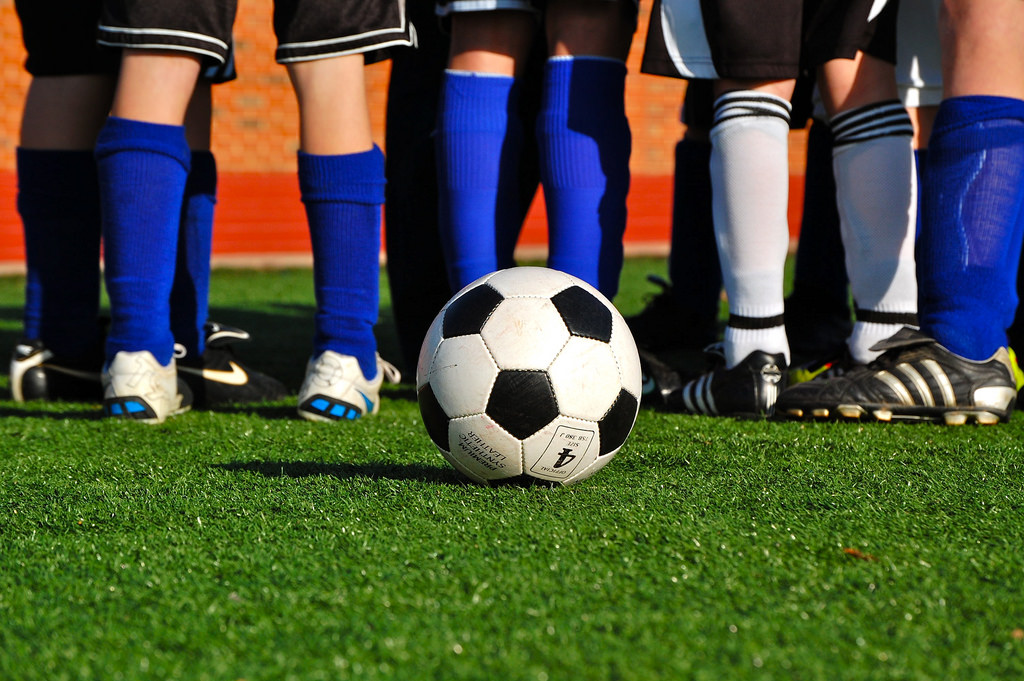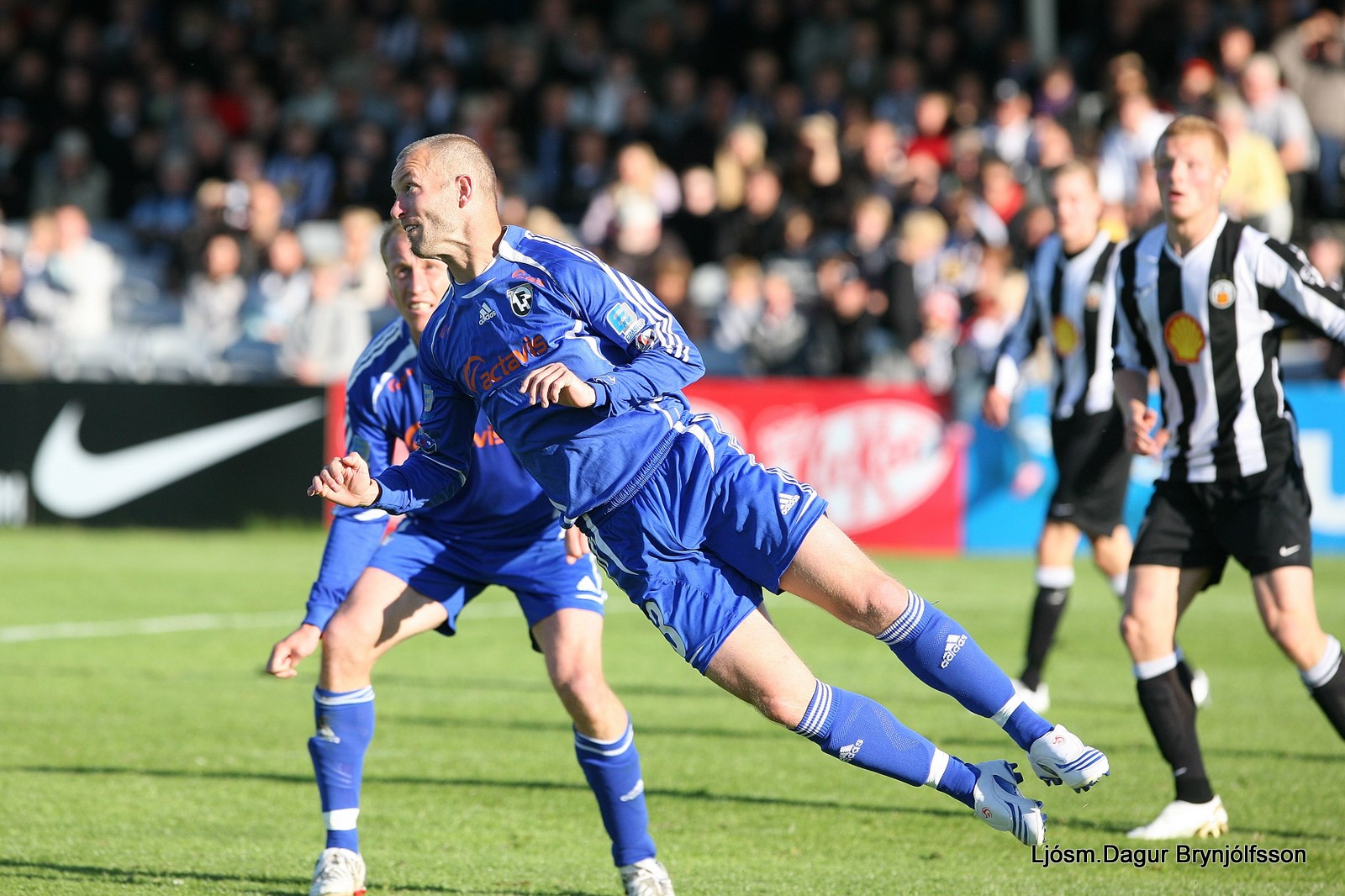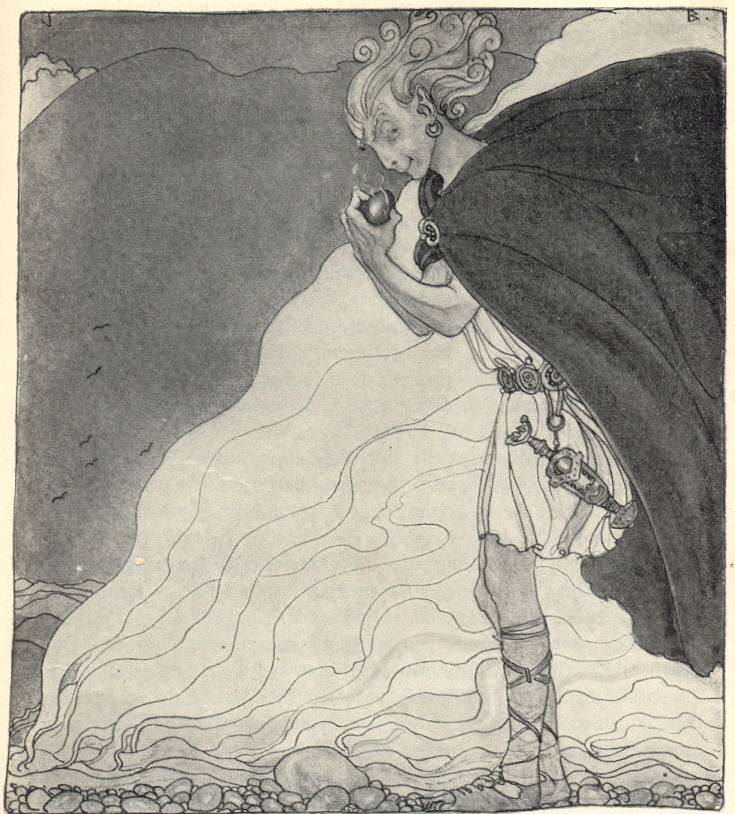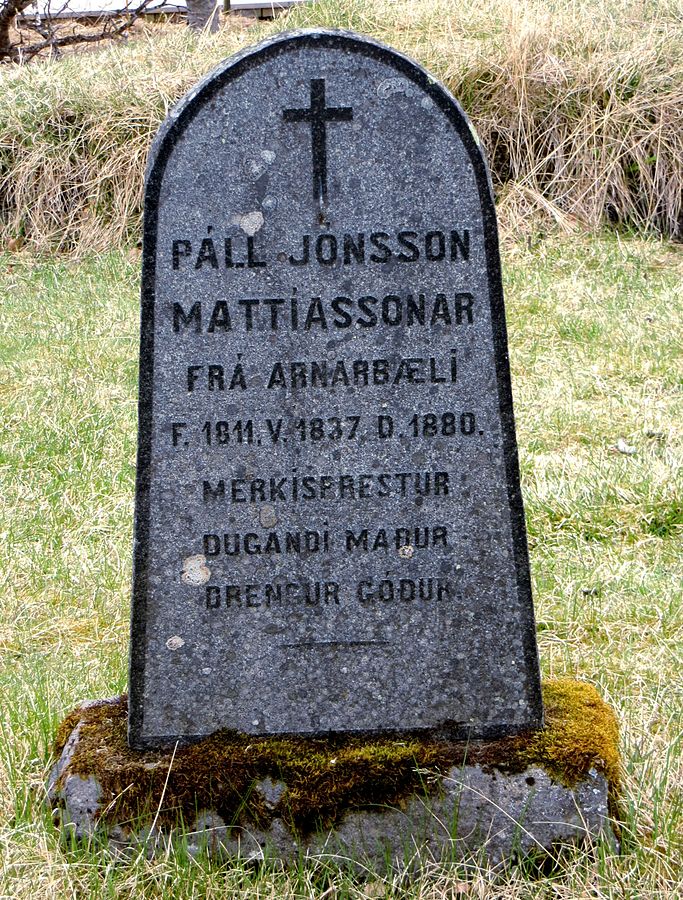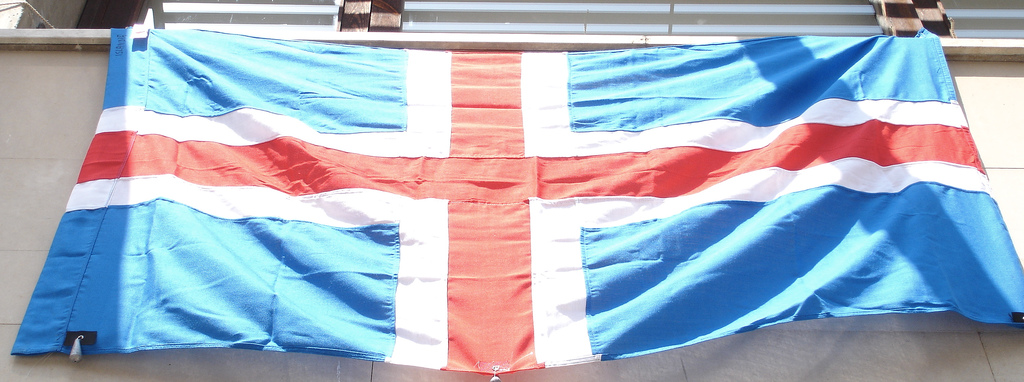Sons of Iceland. Posted by hulda on Jun 23, 2016 in Icelandic culture, Icelandic customs, Icelandic history
Football fever is at record heights right now, but along has come an interesting side feature: if Icelanders try to watch the games in any other language than Icelandic they immediately get a bit confused listening to the announcers. The foreign announcers don’t call the players by their own names! This is due to the rule that players must have their surnames printed on their shirts, which in the case of this one team resulted in their fathers playing instead.
Aside of a few exceptions Icelanders have no surnames. What you see added after their first name/s is a patronymic, occasionally a matronymic, and it doesn’t work as a surname at all. Just watch, if you ever get the chance to, an Icelandic family abroad trying to sign up for anything that needs every family member’s names such as a hotel room and see the confusion that arises when Sigurður Jónsson and Guðrún Pétursson claim to be a married couple and that their children’s names are Snædís Sigurðardóttir and Páll Sigurðsson. The Icelandic no-surname-surname only tells you what the person’s father or mother’s name is, it does not tie a whole family together and most importantly people don’t use them to refer to a specific person. Our president is Ólafur Ragnar, not Grímsson (I had to look up his patronymic because I had forgotten what it was).
There are a rare few families with actual family names that were taken during the short window when that was legally made possible, but since then the only way to get one is by being a direct descendant of that family. Marriage gives you no right to that name, as Icelanders never change surname at marriage – it wouldn’t make any sense to make a married couple “siblings” by making them share the same patronymic after all.
The usual way of how a patronymic is assigned is via the father. A son of Bjarni is Bjarnason, a daughter of Hafþór is Hafþórsdóttir. Sometimes when the father has two names and prefers to use his middle name the children will get their patronymic after the second name, so a Reynir Árni who uses Árni as his main name would have Árnasons and Árnadóttirs.
A matronymic option is rarer but it’s becoming more and more popular now that the former social stigma that used to follow one no longer exists. Regardless matronymics have a long history as is evident by the jötunn Loki Laufeyjarson. Laufeyson is a Marvel invention and makes zero sense by declension because sometimes the genitive demands an -ar ending instead of the -s. Surprisingly some names can have both a -s and an -ar genitive forms which may even have a tendency to work differently according to the gender of the child. Sigurður is one such name, a son of Sigurður is typically Sigurðsson but his daughters tend to be Sigurðardóttirs.
The social stigma I mentioned is probably an easy one to guess. A child with matronymic used to be read as “a child whose father is not known”. Nowadays people no longer make this connection and wouldn’t care much if someone did, and some even change their patronymics to matronymics if their mother f.ex. has been in their life considerably more than their father. Back in the days when being a single parent was considered suspicious some mothers would try to make life a little bit easier for their children by selecting a patronymic such as Hansson/dóttir, a child of Hans… or a child of hann (= the male pronoun).
There was one era in the history of Iceland when men named Hans were apparently getting very busy with the ladies: during the occupation years when American soldiers were a regular sight. Many would get a local girlfriend they’d then ditch when it was time to go home and the girlfriend would have to figure out what to do about naming the possible results, especially considering having a child with an American was at worst seen akin to betraying your own people. Another common code name was Erlendur, which is a similar pun as Hans, only erlendur means foreign.
But what if the parents were not known, as one reader recently asked. What if there was a situation in which no one could tell whose child someone was, what then would become their patronymic or matronymic? The answer is that the child would no doubt be adopted and would then be given the name after their adoptive parents. It’s even possible to change a child’s name if the situation so demands, as with going from patronymic to matronymic or switching one patronymic to another. In the unlikely case that there had been a person whose name or parents were not known, the Icelandic John/Jane Doe would simply be Jón Jónsson/Jóna Jónsdóttir.
This is why the football players name situation is so confusing (they did ask if they could have their own names printed on but alas, that was against the rules and therefore a no). Think of it as if you were suddenly referred to as “son/daughter of [your parent]” and you have an idea of what Icelanders hear when their team is being referred to by the patronymics. It’s akin to saying that Son of José did not behave in a dignified manner when his team played even against Iceland, or that Son of Šefik had a rather disappointing last match, it does not make that immediate connection to the person in question.
In any case, ÁFRAM ÍSLAND!
PS Football is fótbolti or knattspyrna (= lit. transl. “ball kicking) in Icelandic.

Build vocabulary, practice pronunciation, and more with Transparent Language Online. Available anytime, anywhere, on any device.
About the Author: hulda
Hi, I'm Hulda, originally Finnish but now living in the suburbs of Reykjavík. I'm here to help you in any way I can if you're considering learning Icelandic. Nice to meet you!



